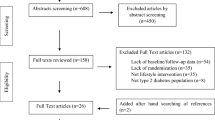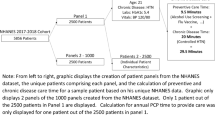Abstract
Objective: Assessment of a pharmacist-run anaemia educational programme for patients with chr-onic renal insufficiency. Setting: Nephrology Department, Grenoble Hospital, France Method: A 12-week prospective study, using a before–after intervention design. Included in the study were predialysis outpatients with a haemoglobin level < 10 g/dl, de novo EPO prescription; judged qualified by the nephrologist for self-injections; accepting self-injections. The intervention was a single one-hour individual session between the pharmacist and the patient to target (1) medical and therapeutic information; (2) information on the device, a pen used with a cartridge of beta epoietin; (3) training with the pen; and (4) self-injection of the first dose by the patient, in front of the pharmacist. Main outcome measures were knowledge (7-item questionnaire); handling skills (observation) and Quality of Life (1 Likert scale on apprehension towards self-injections and 3 Linear Analog Scales on energy, daily activities, and general well-being); compliance (self-report on self-administered injections) and haemoglobin level. Results: Ten patients were followed for 3 months after intervention. The evolution of the knowledge was positive but not statistically significant after the programme (80% of good answers before; 93% 3 months later). Concerning the patients’ skills, difficulties with the pen were important at inclusion, (1) to reset the pen into zero position (2.8 tries/patient ±1.8); (2) to insert a new cartridge (1.9 ± 1.1); and (3) to take air out of the cartridge (2.3 ± 1.2). After the session, results were satisfactory, since 3 months later, all patients were still on self-injections. QoL improved significantly over the study period respectively on energy, daily activities, and general well-being. The mean level of compliance remained above 90% at 3 months for 8 out of 10 patients. Patients reached the haemoglobin target value of 11 g/dl during the second month of treatment. Conclusion: A tailored educational programme conducted by a pharmacist is beneficial for anaemia patients with chronic renal insufficiency. The programme seems to result in a high level of compliance, leading to an optimal haemoglobin level within two months.
Similar content being viewed by others
References
Radermacher J and Koch KM (1995). The treatment of renal anaemia by erythropoietin substitution. The effects on the cardiovascular system. Clin Nephrol 44(Suppl 1): S56–S60
Robertson HT, Haley NR, Guthrie M, Cardenas D, Eschbach JW and Adamson JW (1990). Recombinant erythropoietin improves exercise capacity in anemic hemodialysis patients. Am J Kidney Dis 15(4): 325–332
Valderrabano F (2000). Quality of life benefits of early anaemia treatment. Nephrol Dial Transplant 15(Suppl 3): 23–28
Fink J, Blahut S, Reddy M and Light PW (2001). Use of erythropoietin before the initiation of dialysis and its impact on mortality. Am J Kidney Dis 37(2): 348–355
Jungers P, Choukroun G, Oualim Z, Robino C, Nguyen AT and Man NK (2001). Beneficial influence of recombinant human erythropoietin therapy on the rate of progression of chronic renal failure in predialysis patients. Nephrol Dial Transplant 16(2): 307–312
Nicoletta P, Bernardini J, Dacko C and Fried L (2000). Compliance with subcutaneous erythropoietin in peritoneal dialysis patients. Adv Perit Dial 16: 90–92
Wazny LD, Stojimirovic BB, Heidenheim P and Blake PG (2002). Factors influencing erythropoietin compliance in peritoneal dialysis patients. Am J Kidney Dis 40(3): 623–628
Golper T (2001). Patient education: can it maximize the success of therapy?. Nephrol Dial Transplant 16(Suppl 7): 23–24
Weiss L (2002). A rationale for an individualized administration frequency of epoetin beta: a clinical perspective. Nephrol Dial Transplant 17(Suppl 6): 8–12
Gabrilove J, Cleeland C and Livingston R (2001). Clinical evaluation of once-weekly dosing of epoetin alfa in chemotherapy patients: improvements in haemoglobin and quality of life are similar to three-times-weekly dosing. J Clin Oncol 19(11): 2875–2882
Working party for European best practice guidelines for the management of anaemia in patients with chronic renal failure. Nephrol Dial Transplant 1999; 14(Suppl 5):1–50
Frankenfield DL and Johnson CA (2002). Current management of anaemia in adult hemodialysis patients with end-stage renal disease. Am J Health-Syst Pharm 59(5): 429–435
Linh L, Stoner CP, Stolley SN, Buenviaje JD and Ziegler TW (2001). Effectiveness of a pharmacist-implemented anaemia management protocol in an outpatient hemodialysis unit. Am J Health-Syst Pharm 58(21): 2061–2065
Leger S, Allenet B, Pichot O, Figari G, Calop J, Carpentier P and Bosson JL (2004). Impact of an education program on patient behavior favoring prevention of drug-related adverse events: a pilot study in patients receiving oral anticoagulants for thromboembolic venous disease. J Mal Vasc 29(3): 152–158
Ruiz Gallar P, Balcke P and Montenegro Martinez J (2000). Tolerability of the epoetin-beta multidose formulation (Reco-Pen®) in patients with renal anaemia. Clin Drug Invest 20(3): 151–158
Author information
Authors and Affiliations
Corresponding author
Additional information
Presented at the 4th European Society of Clinical Pharmacy Spring Conference, Lisboa, 14–17 May 2003.
Rights and permissions
About this article
Cite this article
Allenet, B., Chen, C., Romanet, T. et al. Assessing a pharmacist-run anaemia educational programme for patients with chronic renal insufficiency. Pharm World Sci 29, 7–11 (2007). https://doi.org/10.1007/s11096-005-4800-4
Received:
Accepted:
Published:
Issue Date:
DOI: https://doi.org/10.1007/s11096-005-4800-4




